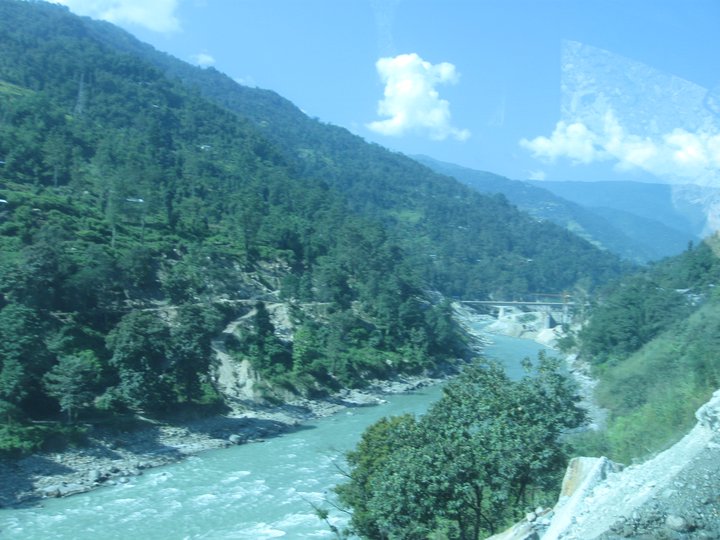
WANDERLUST Sea Nile Photo : M K Paul Samsara Mansarovar
Wanderlust, this term that is defined by an inherent desire to travel the world, has descended upon this modern age. It is not just travel; it is sheer passion for travel, a search for self-knowing, and a touch of the world’s diversification. This essay explores the psychology of wanderlust, how one acquires it, its manifestation and significance, in the case at hand of Rishikesh, India, an ideal destination whose name is almost as closely associated with the personality of the term as a given. The long-time vacation destination of choice for spiritual seekers, adventurers, and nature lovers alike, Rishikesh is the ideal location to reflect on the psychological origins of wanderlust.
The Nature of Wanderlust:
A. What is Wanderlust
Wanderlust has been applied to characterize an extreme desire to travel and learn more. Wanderlust is a current interest and search for experience beyond the ordinary. Wanderlust is not physical movement; it is mental and usually leads to change and growth on an individual basis.
B. Psychological Underpinnings
This wanderlust is considerably engaged in some psychology factors. Psychologists call that wanderlust can be a result of some personality traits, including openness to experience, a situation where one is defined by innovativeness, creativeness, and receptivity to ideas and experience on a diversity basis. Open people are discovered to be hungry for something new, such as the environment and culture, and therefore they induce wanderlust among them.
Apart from that, wanderlust is associated with intrinsic motivation—the drive to do something due to the enjoyment of doing it and not for payment. Intrinsic motivation is the force behind the urge to go out, discover, and enjoy the variety of life beyond one’s life.
C. The Role of Identity
Wanderlust is also demanded in identity development. Exploring to new areas puts an individual out of his/her comfort zone and subjects him/her to experiences that one has never encountered before. It subjects him/her to self-reflection as it relates to his/her belief, values, and identity. To many, traveling to new areas carries a label of self-reinvention and liberation, which makes wanderlust count as a powerful drive towards self-growth.
Rishikesh: A Wanderlust Haven:
A. Overview and Importance
Among the Himalayan foothills on the banks of the Ganges is Rishikesh, the “Yoga Capital of the World.” The cosmopolitan town invites the world to come and get swept into its spiritual scene, nature, and adventure sports. Rishikesh is all about wanderlust, where the traveller gets to experience a mix of something that can attract the spiritual seeker, the adventure sports fan, and the nature enthusiast.
B. Spiritual Journey
For some, Rishikesh is a form of spiritual pilgrimage—a destination where inner peace and spiritual consciousness are pursued. The town is filled with ashrams and meditation schools where one can access yoga, meditation, and traditional spiritual discipline. The serene environment and the gentle soft flow of the Ganges River create the perfect environment for the inner search and spiritual questioning of the soul.
The religious magnetism of Rishikesh is the product of the psychological impact of wanderlust. When one is on a journey of spirituality, one feels to belong to something more than oneself. That is what activates a transformation at the very base level, an affirmation of the reality that wanderlust is not physical exploration but an evolution of the self.
C. Adventure and Nature
Besides religious significance, Rishikesh is a playground for adventure-seekers. White-water rafting, trekking, and bungee jumping are sports for which the town is famous, and sports that always invite one who requires adrenaline. Participating in such activities is another mood elevator; a shot of adventure is sufficient to drive one’s level of ecstasy and bliss to dizzying heights.
Adventure tourism is also commonly associated with the release of endorphins, naturally occurring mood-altering hormones produced by the body. The relationship of physical activity and mental wellness informs us much about the contribution of adventure to wanderlust psychology. The survival test of taking part in the activities may imbue a person with a sense of power and an aura of achievement, which lends the need to travel an even more powerful attraction.
D. Cultural Immersion
Travel to Rishikesh also provides exposure to culture. The town itself is full of traditions, ranging from ancient temples to celebration festivities. Interaction with the indigenous culture makes the traveller sensitive to the people and their faiths. This is a determining factor of wanderlust because tolerance, sympathy, and cosmopolitanism are developed.
The practice of engaging in somebody else’s culture also battles with preconceptions and stereotypes. Engaging in the daily activities of the indigenes, tourists are also likely to receive information that familiarizes them more with human nature. This psychological aspect of vagabondism captures the character of attachment and belongingness in a community.
E. The Healing Power of Nature
Natural scenery in Rishikesh is a powerful reason why people get drawn towards it. Greens hills, churning river of Ganges, and serene landscapes create a serene atmosphere that makes the person relax and meditate. Nature is the cause of good mental health, and there is sufficient evidence to claim that nature calms people from stress, anxiety, and depression.
Psychological benefits of nature are likely to be exploited in wanderlust. Nature scenery is what everybody desires as an escape from the turmoil of life. Rishikesh scenery brings to mind nature healing, with the perfect scenery to enjoy adventure and relaxation.
The Role of Technology in Wanderlust:
A. The Digital Age of Travel
With the technology of the past decades, wanderlust has greatly changed. Blogs, mobile phones, and the social networking sites have unlocked the possibility that it is now easy to find out new locations and provide recommendations on how to travel there in comparison to previous decades. The internet enabled there to be a community of travellers from around the world who attempt and visit non-traditional and non-visited places.
But the pervasiveness of technology in travel also denies the experience of authenticity. The need for an unadulterated experience of travel can lead to shallow experiences of places. Travelers have to balance between documenting their experience and living it.
B. Virtual Wanderlust
The introduction of virtual reality (VR) has allowed one to indulge in wanderlust without going abroad. Destinations can be experienced via VR technology from home. As good as the technology may be, it can never be a substitute for the deep impact of real travel on the psyche.
Body movement engages the senses in some kind of experience that cannot be replicated by virtual touch. Street vendor odours, giggles and screams in the din of a bazaar, and skin contact with terra firma in foreign lands all add richness to travel. Technology can feed wanderlust, no doubt, but there is an argument to recall the value of in-comparable real-world discovery.
The Redemptive Power of Travel:
A. Personal Transformation
The journey itself, particularly to a place like Rishikesh, is a means in the way of self-enhancement and self-realization. Whatever difficulties one faces on the journey, whether coping with new cities or picking up a new language, are sure to make one more resilient and accustomed to worlds which shift in a matter of minutes. These are skills more required today than ever in the world’s history, where acclimatization to two cultures is no longer an assumption.
Exposure to varying living conditions and life also tests the belief system of the individual and therefore evokes learning and empathy. The travellers also return with their new sense of purpose in life, thereby solidifying that wanderlust does heal.
B. Building Bonds
Tourism provides the chance to encounter so many individuals with diverse backgrounds. Travelers to Rishikesh are exposed to encounters with fellow travellers, locals, and spiritual masters such that there will be room for the genuine article in between. Such kinds of interactions come with lifetime connections and senses of belongingness that will not rely on position or location.
The psychological benefit of social bonding cannot be overstated. It has been established through studies that intimate social connections create overall satisfaction and happiness. Thus, the social connections formed during a travel adventure are a miracle in boosting the experience of wanderlust.
Conclusion:
Wanderlust psychology is a multiplicity psychology in which there is an insatiable desire to discover, understand, and identify with. Rishikesh as a spiritually inclined destination with a touch of adventure and divine quality is the worst best-case scenario to witness wanderlust psychology. Whenever human beings transition from one place to another, not only are they exposed to the external world but also attain the inner self.
Wanderlust is greater than the need to be on the move; it is a journey that can result in self-enrichment, cross-cultural understanding, and long-term relationships. In a disintegrated and fragmented world, to travel in search of wanderlust is to find again a way of reconnecting with the beauty of life and the richness of human life. As the traveller becomes ever more desperately in search of fresh frontiers, the enticement of wanderlust will continue as a powerful influence, reshaping lives and fostering ever deeper affection for the world we inhabit.
By: Shreyank Singh
Write and Win: Participate in Creative writing Contest & International Essay Contest and win fabulous prizes.


